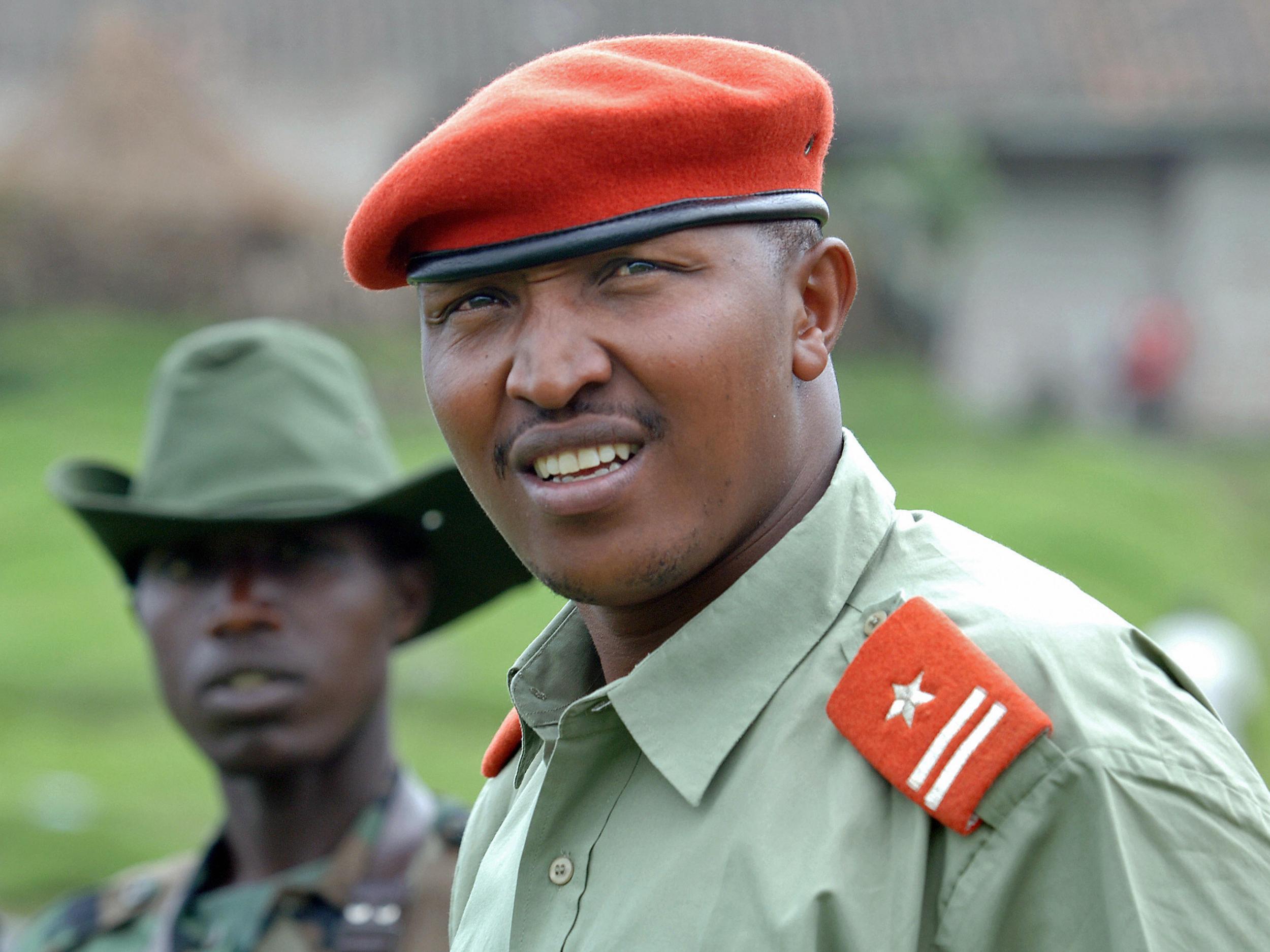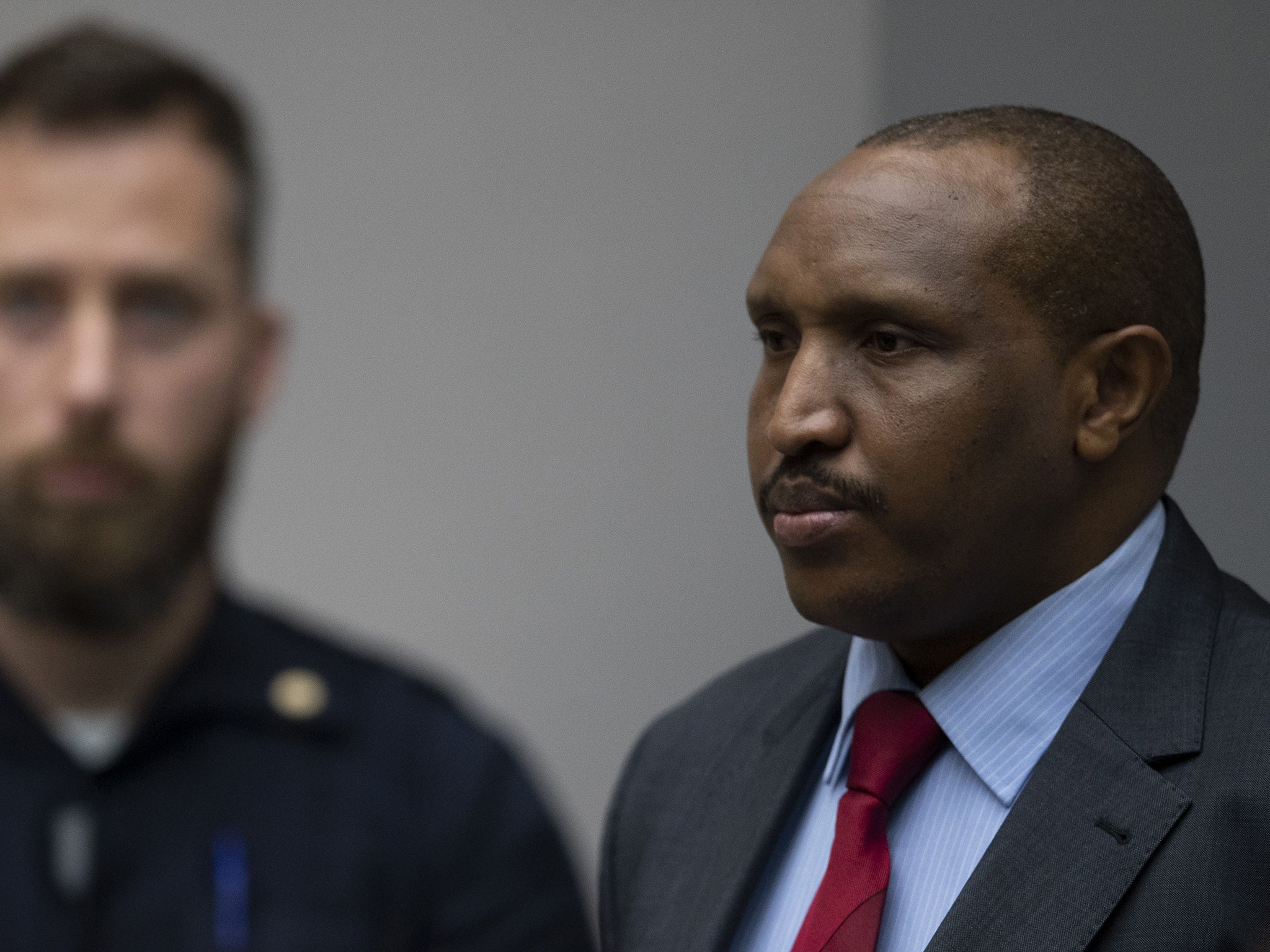‘Terminator’ warlord jailed for life for Congo war crimes
Sentence will help survivors heal from Bosco Ntaganda atrocities, activists say

Your support helps us to tell the story
From reproductive rights to climate change to Big Tech, The Independent is on the ground when the story is developing. Whether it's investigating the financials of Elon Musk's pro-Trump PAC or producing our latest documentary, 'The A Word', which shines a light on the American women fighting for reproductive rights, we know how important it is to parse out the facts from the messaging.
At such a critical moment in US history, we need reporters on the ground. Your donation allows us to keep sending journalists to speak to both sides of the story.
The Independent is trusted by Americans across the entire political spectrum. And unlike many other quality news outlets, we choose not to lock Americans out of our reporting and analysis with paywalls. We believe quality journalism should be available to everyone, paid for by those who can afford it.
Your support makes all the difference.The International Criminal Court passed its highest ever sentence, sending a Congolese warlord known as “The Terminator” to prison for 30 years for crimes including murder, rape and sexual slavery.
Bosco Ntaganda was found guilty in July of 18 counts of war crimes and crimes against humanity for his role as a military commander in atrocities during a bloody ethnic conflict in a mineral-rich region of Congo between 2002 and 2003.
Ntaganda showed no emotion as presiding judge Robert Fremr passed sentences ranging from eight years to 30 years for individual crimes and an overarching sentence of 30 years.
The court’s maximum sentence is 30 years, although judges also have the discretion to impose a life sentence.
Lawyers representing victims in the case had called for a life term.
Mr Fremr said despite the gravity of the crimes and Ntaganda’s culpability, his convictions “do not warrant a sentence of life imprisonment”.
Ida Sawyer, deputy director of Human Rights Watch’s Africa division, welcomed the ruling.
“Bosco Ntaganda’s 30-year sentence sends a strong message that even people considered untouchable may one day be held to account,” Ms Sawyer said.
Jolino Makelele, a spokesman for the government in Democratic Republic of Congo, said: “We think that justice was done for the victims.”
Ntaganda, who has insisted he is innocent, became a symbol of widespread impunity in Africa in the seven-odd years between first being indicted by the global court and finally turning himself in in 2013 as his power base fell apart.
Physicians for Human Rights said the sentencing set an important precedent.
But Karen Naimer, who directs the group’s programme on sexual violence in conflict zones, added that “international and local prosecution efforts must be dramatically strengthened if we are to curb the rampant impunity for mass atrocities we see in the DRC and elsewhere around the world”.
Judges at Ntaganda’s trial said he was guilty as a direct perpetrator of a murder and as an indirect co-perpetrator of a string of crimes including murders, rapes of men and women, a massacre in a banana field and of enlisting and using child soldiers.
Child soldiers also were raped by Ntaganda’s troops and forced into sexual slavery, leaving them with lasting physical and psychological scars.
Ntaganda himself used child soldiers as bodyguards.
“Some individuals who survived or witnessed the murders and attempted murders that Mr. Ntaganda was convicted of still bear permanent scars, both physical and psychological, including long-term memory loss, neurological disturbances and extensive physical scarring,” Mr Fremr said.

Ntaganda testified for weeks in his own defence, saying he wanted to put the record straight about his reputation as a ruthless military leader.
He was the deputy chief of staff and commander of operations for rebel group the Patriotic Forces for the Liberation of Congo.
The force’s leader, Thomas Lubanga, was convicted by the ICC in 2012 of using child soldiers. He is serving a 14-year prison sentence.
Ntaganda earned a higher sentence because he was convicted of far more crimes.

He has already launched an appeal against his convictions and has 30 days to appeal against his sentence.
In their unanimous 117-page ruling, the three judges said they could find no mitigating factors that warranted reducing Ntaganda’s sentence.
But they found plenty of aggravating circumstances, identifying in the murder convictions the “particular cruelty” of several crimes, the “defencelessness of some of the victims” and the fact that Ntaganda, as a high-ranking commander, personally murdered a man in front of his subordinates.
Xavier Macky, executive director of the human rights group Justice Plus in Bunia, Congo, said he wants victims to receive compensation.
“This sentence will help heal not only survivors but those who lost their loved ones during the atrocities of Bosco Ntaganda,” Mr Macky said.
Under the court’s rules, victims can apply for reparations. The court said in a statement that “issues related to the procedure for victims’ reparations will be addressed in due course”.
The Hague-based court was set up to prosecute atrocities around the world where national authorities are unable or unwilling to hold trials.
It has faced opposition and criticism, most notably from the US, which is not a member state of the court.
President Donald Trump’s former national security adviser, John Bolton, last year said the US wouldn’t cooperate with the court, adding that “for all intents and purposes, the ICC is already dead to us”.
Associated Press
Join our commenting forum
Join thought-provoking conversations, follow other Independent readers and see their replies
Comments